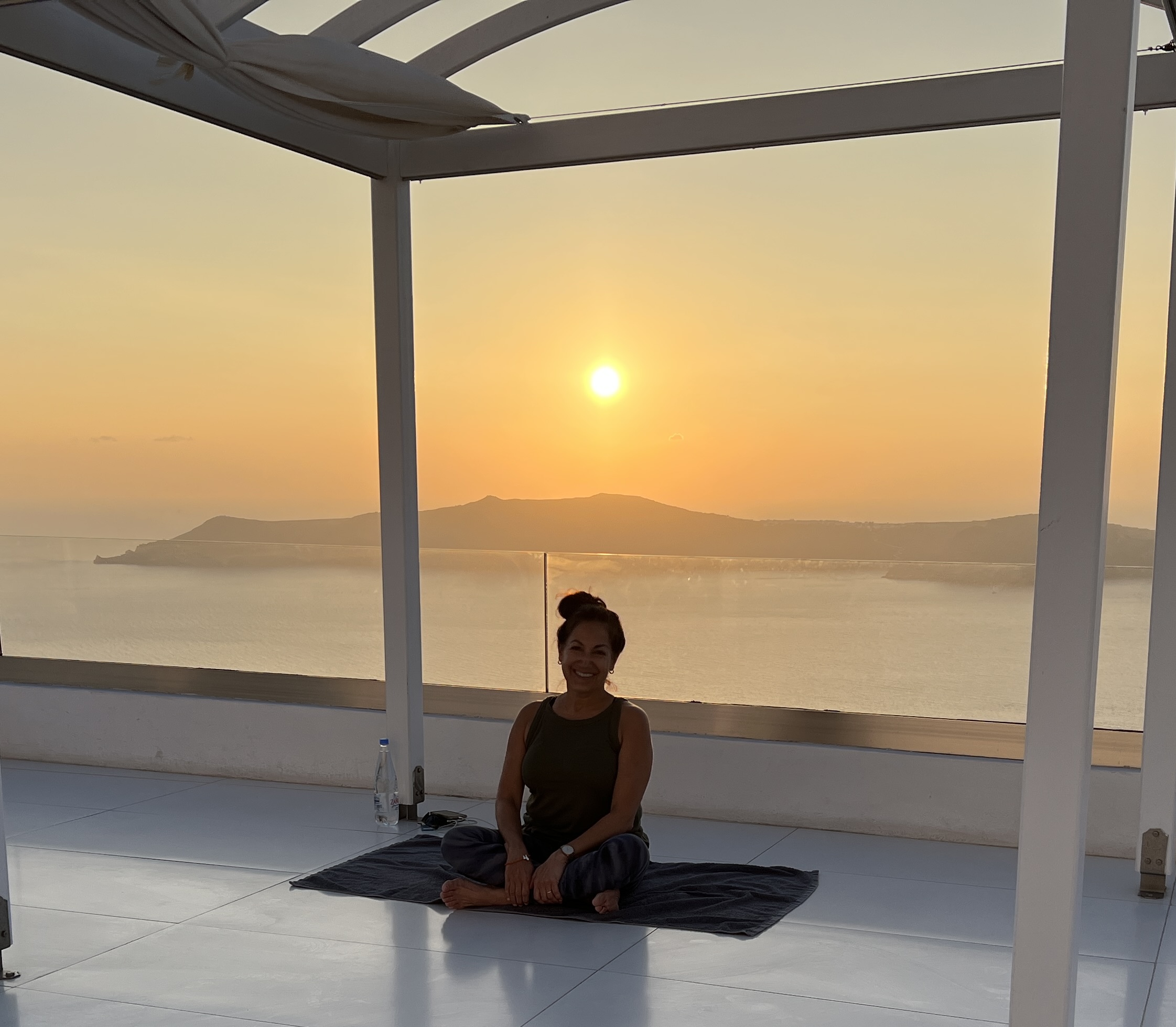I own a book, by Ramana Maharshi, on meditation that is 505 pages long. I bought the book in a secondhand bookshop 15 years ago, hoping one day I would read it and discover the mysterious secrets behind meditation. Have I read it? No, I haven’t. Let me say I’ve tried, but I quickly fall into Delta waves of brain activity where sleep, rather than meditation, occurs. The book sits on my bookshelf, with its ominous weight, reminding me that I really must start a solid, daily meditation practice.
To be quite frank with you, I have often wondered how one can fill over 500 pages with instructions and insight into meditation. Buddha succinctly described the mind in meditation by likening it to a candle flame in a room void of drafts. The steady candle flame is the steady mind. Buddha also compared the meditative mind to a tarn, protected from the wind on all sides by rocky mountainous walls. The tarn’s water is smooth and glass-like, flawlessly reflecting the sky above. The mind on meditation is complete stillness, a state of being where we can observe and experience our true nature.
Below I write about the benefits of meditation and I’ll include seasonal photographs that are inspirational and a meditation onto themselves.
What happens when we meditate? Have you ever noticed how close the words “MEDITATION” and “MEDICATION” are? If you have auto-correct on your computer, you could easily, innocently write, “I do medication every morning.” or “I take meditation daily to help me with my migraines.” Did you know that meditation can take the place of medication? There is increasing evidence that just 10 minutes of daily meditation has effects akin to, or is better than, taking Prozac, without any ill effects or pills to take!
Here is what happens to your brain and body when you meditate regularly:
- Meditation improves cognitive functions, perception, memory, and the ability to focus.
- Similar to the effects of getting a good night sleep, meditation improves your productivity, intelligence and creativity.
- Meditation influences your emotions by lowering anxiety. This occurs because meditation measurably lowers blood lactate levels.
- Sitting quietly and clearing your mind increases serotonin production, a neurotransmitter that boosts mood.
- It decreases depression by harmonizing body and mind. When you meditate, you become more intimate with yourself and see your emotions more clearly. Emotions make us feel more alive and connect us to other people.
- Meditation awakens mindfulness. We become the present moment. We become our breath. This sort of mindfulness is relaxing and lowers heart rate and decreases blood pressure. It increases a sense of wonder as we become more aware of each precious moment and everything contained within any given moment. When we are in this state of awareness, our sensory mind is heightened and we use all of our senses more keenly.
- Meditation improves sleep by calming an overactive mind and bringing it to a relaxed state. It also brings attention to breathing. By watching the breath, we slip into the Theta brain wave activity which is a deeply calming state of being.
- Establishing a mind-body connection allows us to practice stress management skills.
- Research has shown that meditation helps with post-operative healing and with chronic diseases such as allergies and arthritis.
- Meditation enhances the immune system and increases natural “killer cells” which attack bacteria and cancer cells.
- Meditation can teach us to proactively use the mind and body to re-balance the nervous system.
- A solid meditation practice increases health and positive health habits. The practice also helps those who are eliminating cigarette, alcohol, or drug abuse.
- Meditation increases the response time for emotional reactions, so we are not so quick to respond to things that trigger anger or impatience. This short delay allows for some calming time to take in a deep breath and change mood, reaction, and perspective on the triggering matter at hand.
- Yoga and Meditation cannot be separated because when you do yoga, you enter a meditative state of mind. Therefore the following can be applied to both yoga and meditation:
Yoga focuses on meditation which in turn calms thoughts, relieves stress and lightens heavy feelings. Research shows that engaging in yoga postures has a positive impact on mood and anxiety at a chemical level inside the brain that helps induce relaxation and sleep. Deep breathing and relaxation releases oxcytocin, otherwise known as “the cuddle hormone”, which is responsible for stimulating many positive social interactions. In other words, yoga can make you happy.
- The effects of meditation on the nervous system:
The recording of brain activity through the use of Electroencephalography (EEG) demonstrates that meditation shifts brain wave activity by encouraging an increase of lower frequency alpha and theta brain waves. These are the brain waves associated with the body’s relaxation response. Similar findings from other EEG studies also suggest that meditation can create deep relaxation while simultaneously allowing people to maintain a sharp awareness.
- Trishna is the state of endless desire or the continual wanting of more and more possessions. Meditation and Yoga give us the tools to overcome trishna.
- Meditation and yoga help us to reaffirm the natural dignity of all living beings. Both practices are bound together. Yoga and meditation allow us to realize the interdependence of everything.
-
Meditation increases activity in the left prefrontal cortex, associated with:
- Concentration
- Planning
- Meta-cognition (thinking about good feelings)
- Positive Feelings
- Meditation increases brain size!! It lowers depression and anxiety and helps us to make sound decisions, rather than irrational ones.
I vow to take a few precious moments out of each morning to sit and meditate regularly. At the present moment, I only do this occasionally. The benefits are too great to to ignore! I do believe that a form of meditation can be practiced off the mat, but disciplining oneself to sit on a mat or cushion is the formalized way to clear the mind of all distractions. From there, it is all about following the breath and the practice of being in the present moment in perfect mental and physical stillness.














Love your photos! It’s not always easy to sit and meditate, but I find it helps me clear my mind, be more positive and more mindful! Have been meditating on a regular basis since January and I’m finding I’m sleeping better too!
Thanks, Nora! I chose the most meditative photos that are also seasonal. Nature brings me to a meditative state of mind, very clearing, but it is the sitting that is always challenging. A great discipline! love, Fran
thanks Fran! for the informative nudge – I sat and meditated for 10 min today – hello bliss goodbye trishna!!!
Very cool! Yes, goodbye trishna and hello bliss…I love that! -fran
right there with the cat—
the eyes staring inward
a whisker twitching
Rick
Beautiful! Goes with the Bavarian cat photo above and very meditative! -fran
i also vow to sit each day. i love love love your photos!! i hope you are framing some of them!
Thanks, Kay! I am writing part II right now: Yoga Off the Mat and am looking for photos. I may have to borrow some photos this time since I have specific images in mind!